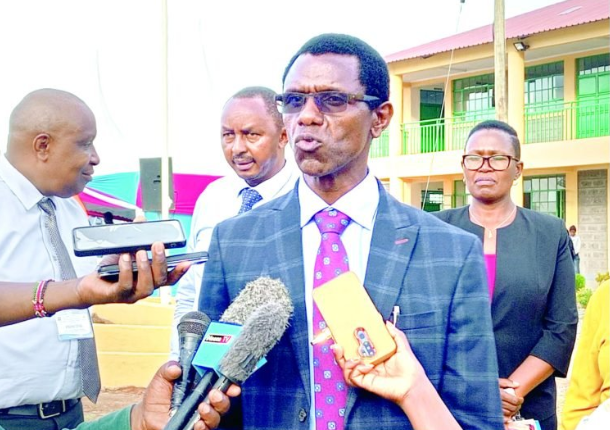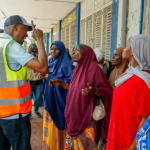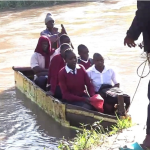Parents of secondary, college, and university students in Ruiru, Kiambu County, are expressing shock over the reduced amounts allocated through the constituency’s education bursary fund.
During the disbursement of Sh90 million in bursary cheques to over 20,000 applicants, many parents were dismayed to find that the amounts had been cut this year. Previously, allocations were Sh7,000 per student, but now they range from Sh5,000 to Sh3,500 for day scholars.
Area MP Simon King’ara and his bursary allocation team faced challenges managing the large crowd of parents at Ruiru Stadium. Students in day secondary schools received Sh3,500, while those in boarding schools and colleges got Sh5,000, a Sh2,000 decrease from the previous year.
While parents acknowledged the MP’s efforts, they called for a more equitable distribution of funds. They observed that students in less populated areas were receiving larger allocations compared to those in densely populated areas like Ruiru. “We expected the amounts to be increased to at least Sh10,000 per student, not reduced. Ruiru seems to be getting a raw deal compared to other constituencies,” said Vincent Muigai, a concerned parent.
MP King’ara explained that over 40,000 students applied for bursaries in Ruiru, but the constituency only received Sh80 million from the National Government Constituency Development Fund (NG-CDF). To address the high number of applicants, King’ara sought additional support from donors.
“We allocated Sh80 million for this year’s disbursements, but the turnout was overwhelming. Even after verification, there were still over 20,000 deserving cases,” he said. King’ara added that he had requested permission from the NG-CDF Board to exceed the Sh80 million ceiling to help all deserving students.
“Education bursaries drain funds intended for other development projects within the education sector, so my office has had to find alternative solutions, including partnering with corporate sponsors and the private sector,” he explained.
King’ara revealed that through these partnerships, over 50 classrooms have been built in various primary and secondary schools in the constituency as part of a public-private participation (PPP) initiative.



